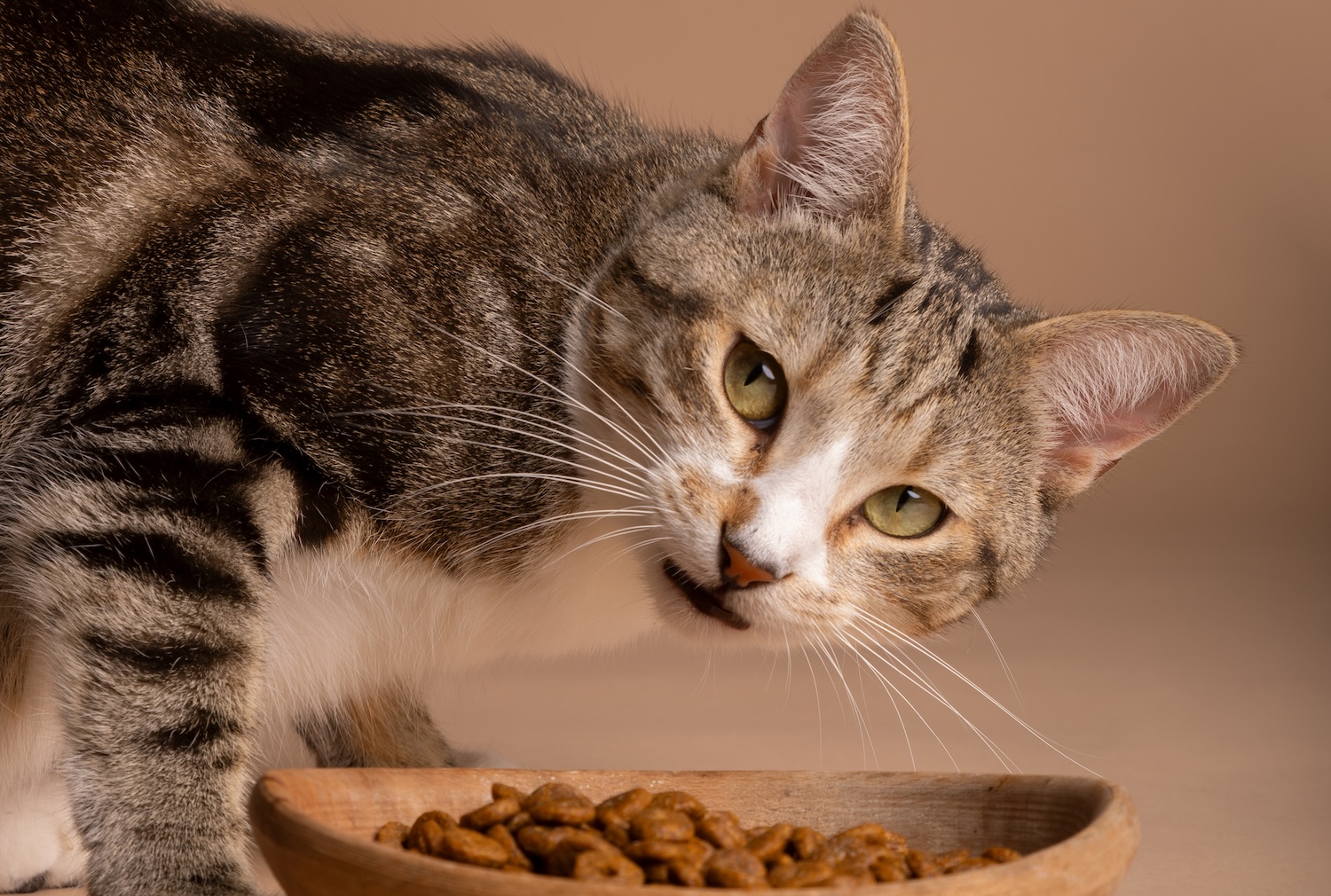01. What is Taurine and Why is it Essential for Cats?
Taurine is a necessary amino acid that is involved in a variety of bodily functions in cats. Since cats cannot internally synthesize taurine, unlike many other animals, they must get this essential nutrient from their food [1]. In order to prevent taurine deficiencies, which can cause major health problems in cats, commercial cat foods are usually fortified with this amino acid.
02. Key Functions of Taurine in Cats
- Heart Health: Taurine is vital for maintaining a healthy heart muscle. Without adequate taurine, cats can develop dilated cardiomyopathy, a serious cardiac condition [2].
- Vision: This amino acid is critical for proper retinal function. In cats, a deficiency can lead to retinal degeneration and even blindness [2].
- Digestive Health: Taurine helps in the formation of bile salts, which are necessary for proper digestion and nutrient absorption.
- Immune System Support: It plays a role in supporting a healthy immune system, helping cats fight off infections and diseases.
- Reproductive Health: Adequate taurine is crucial for proper fetal development in pregnant cats and for the health of nursing kittens [3].
These are just a few of the key functions of taurine in cats. Its role in feline health is extensive and continues to be an area of ongoing research.
03. Best Sources of Taurine for Cats
- Animal-based proteins, especially organ meats (think chicken hearts, beef livers, etc.)
- Fish and Seafood (sardines, mackerel, and other small fish are especially good sources)
- Eggs (also full of other great nutrients)
- High-quality commercial cat foods enriched with taurine (the easiest way for most of us to ensure our cats get enough taurine)
The Association of American Feed Control Officials (AAFCO) recommends a minimum of 0.1% taurine in dry cat food and 0.2% in wet cat food [4]. However, many experts suggest higher levels for optimal health.
04. Emerging Trends in Cat Nutrition
The field of cat nutrition is constantly evolving with new research shedding light on the importance of various nutrients. Some trends to watch include:
- Increased focus on species-appropriate diets that mimic a cat's natural prey (small prey animals like rodents and birds)
- Growing interest in novel protein sources (for example, exotic meats and insects) and their impact on cat health
- Potential for more targeted nutritional recommendations based on a cat's age, breed, and health status - all of which can be easily filtered using KibbleLab's advanced search functionality
05. How KibbleLab Empowers Cat Owners
- Extensive Database: Get access to a wide range of cat food choices, such as toppers, supplements, wet food, and dry kibble.
- Comprehensive Product Details: View comprehensive details for matching results, including brand, name, ingredients and guaranteed analysis.
- User-Driven Improvements: To help us continuously grow and enhance our database, please use our contact form to suggest foods that aren't currently listed.
- Educational Resources: To find out more about cat nutrition and how to choose a healthy diet for your cat, read the rest of our blog.
Key Takeaways
- Cats need to consume taurine because it is an essential amino acid that they cannot make on their own.
- For cats to have healthy hearts, vision, digestion, immune systems, and reproductive systems, they must consume enough taurine.
- Animal-based proteins, especially organ meats, are excellent natural sources of taurine for cats.
- To meet AAFCO recommendations, commercial cat foods should be fortified with taurine.
- KibbleLab's search engine makes it easy to find and compare taurine-rich cat foods.

